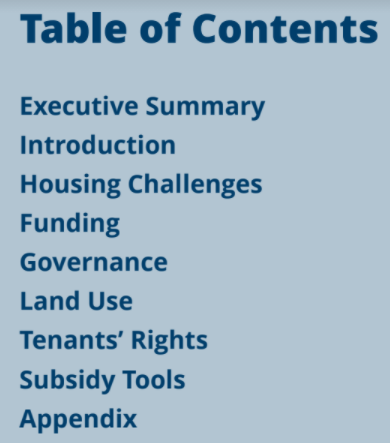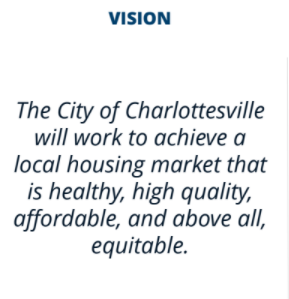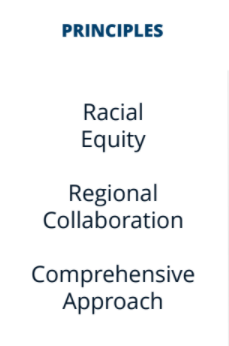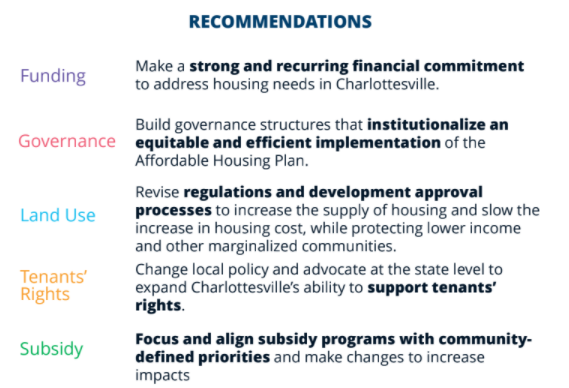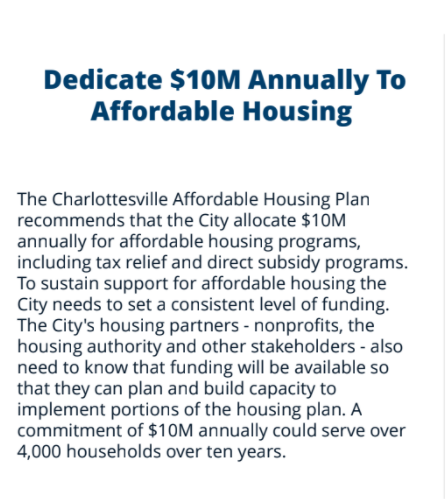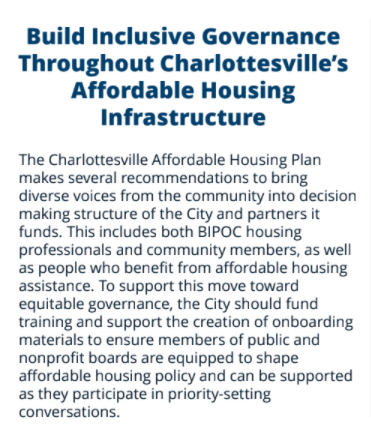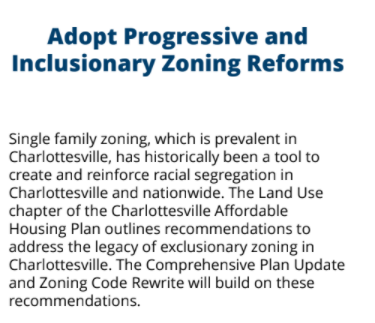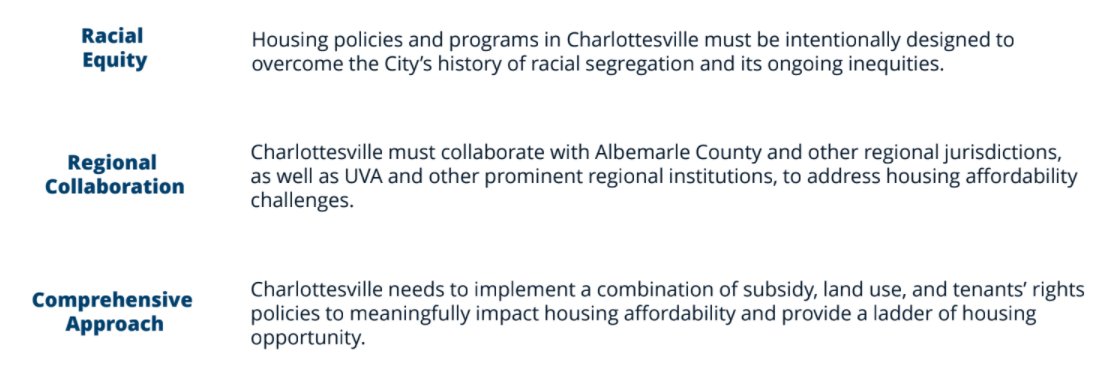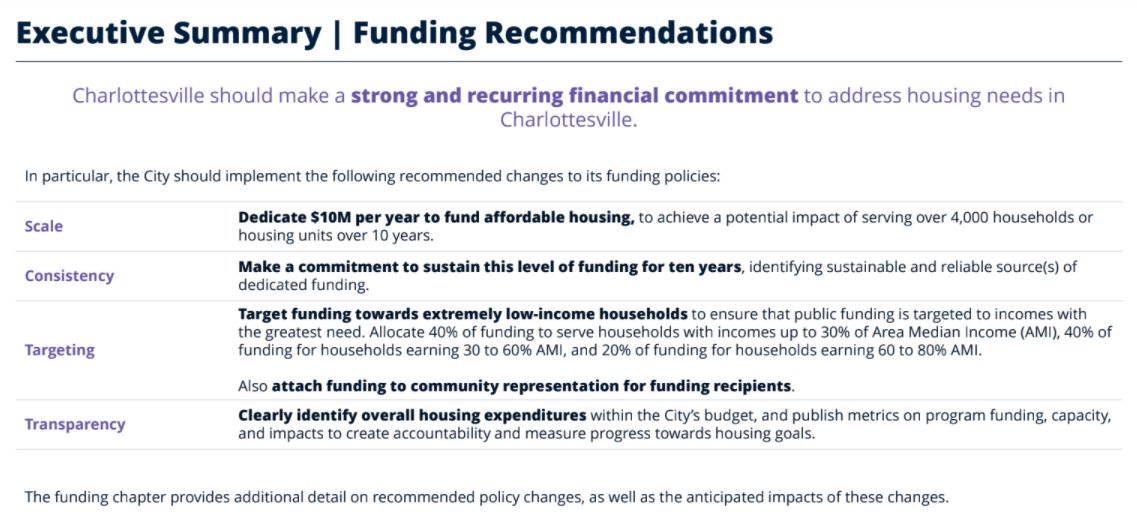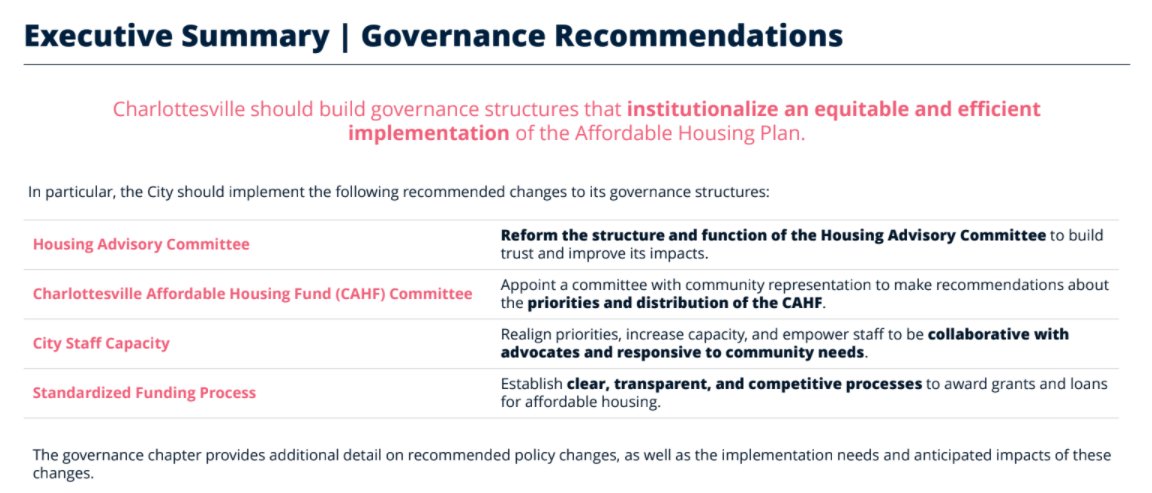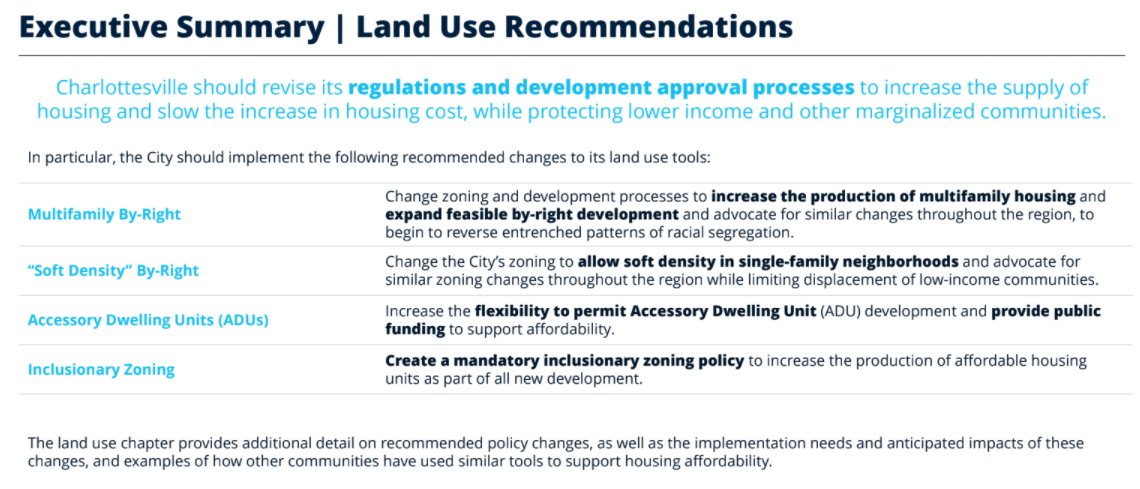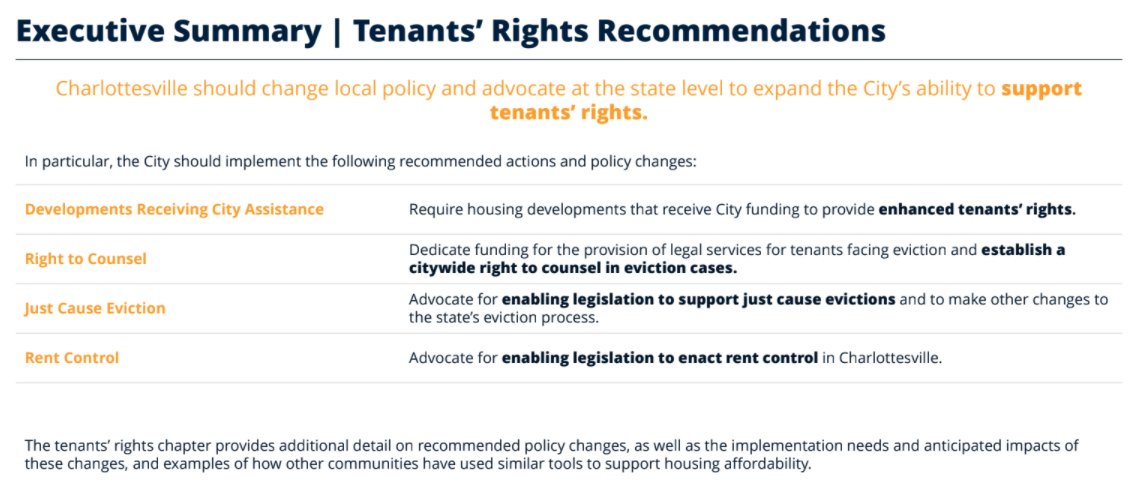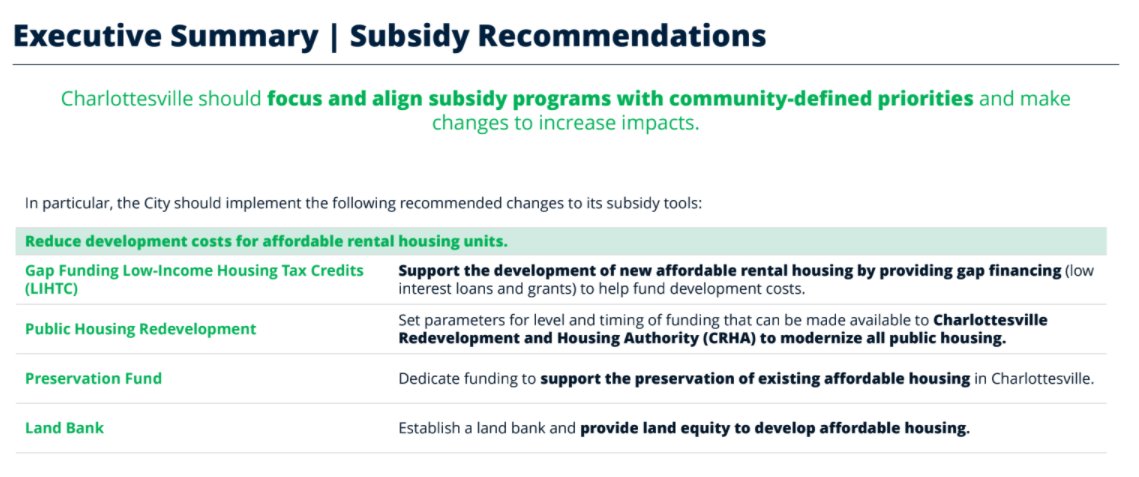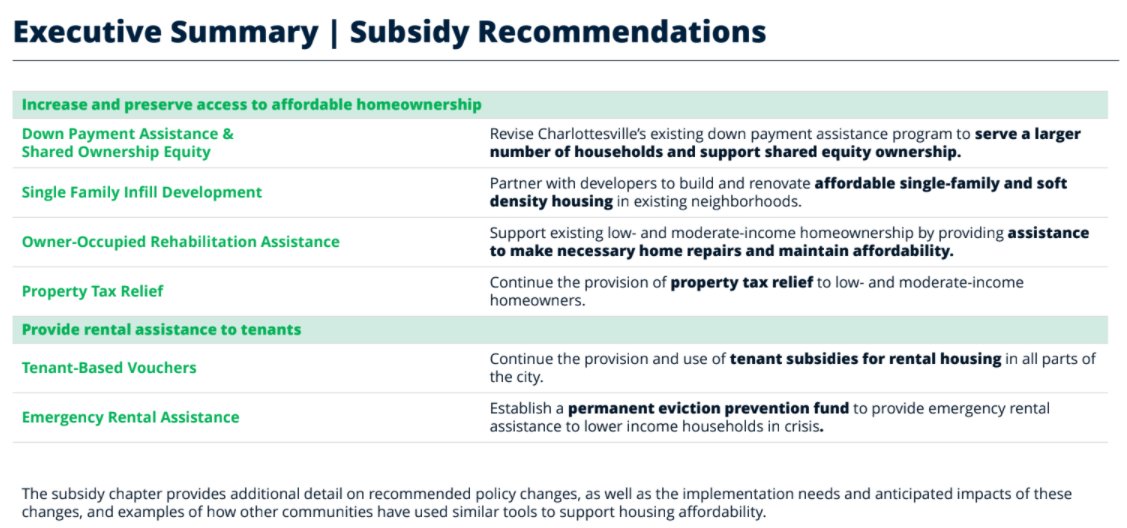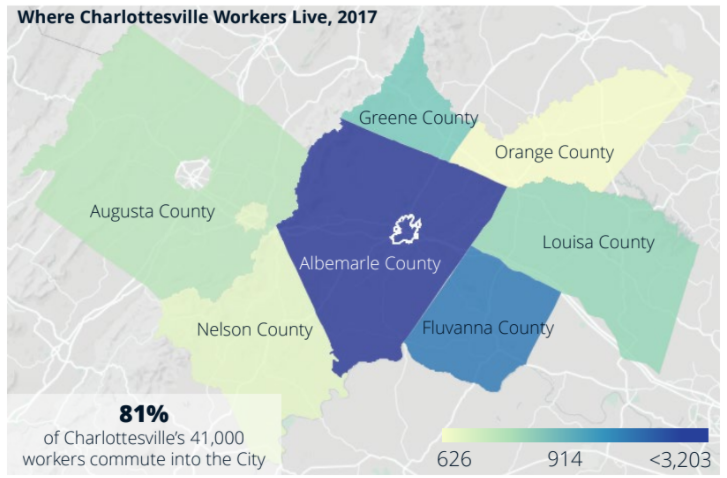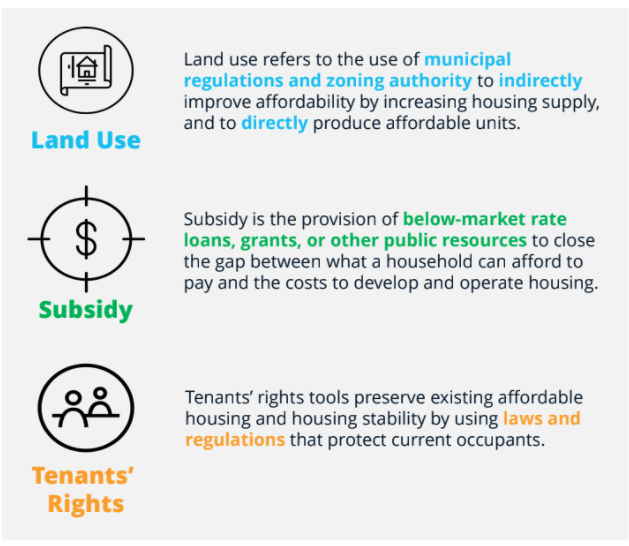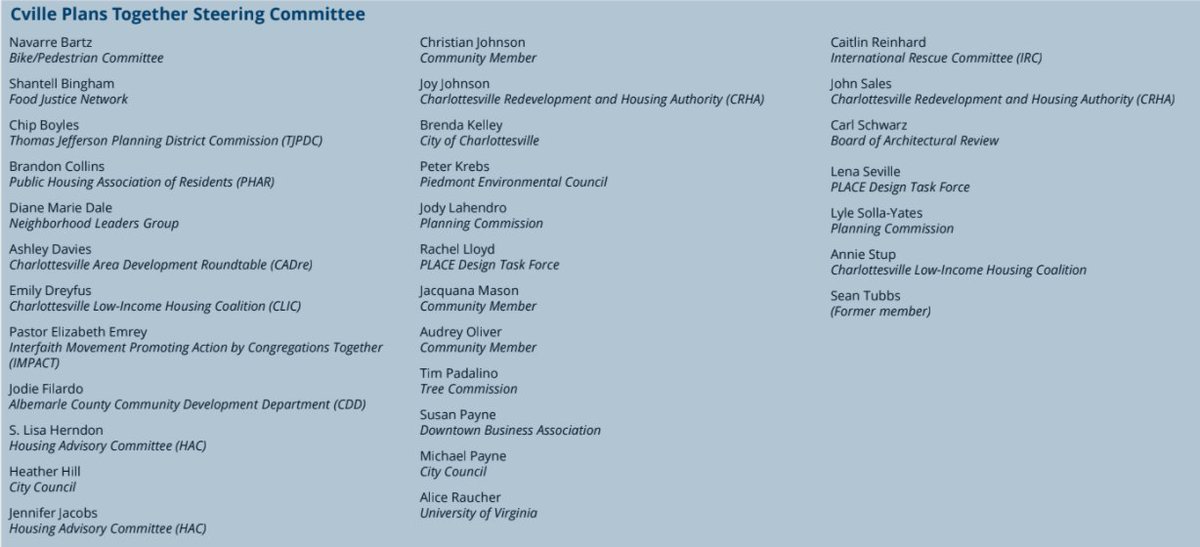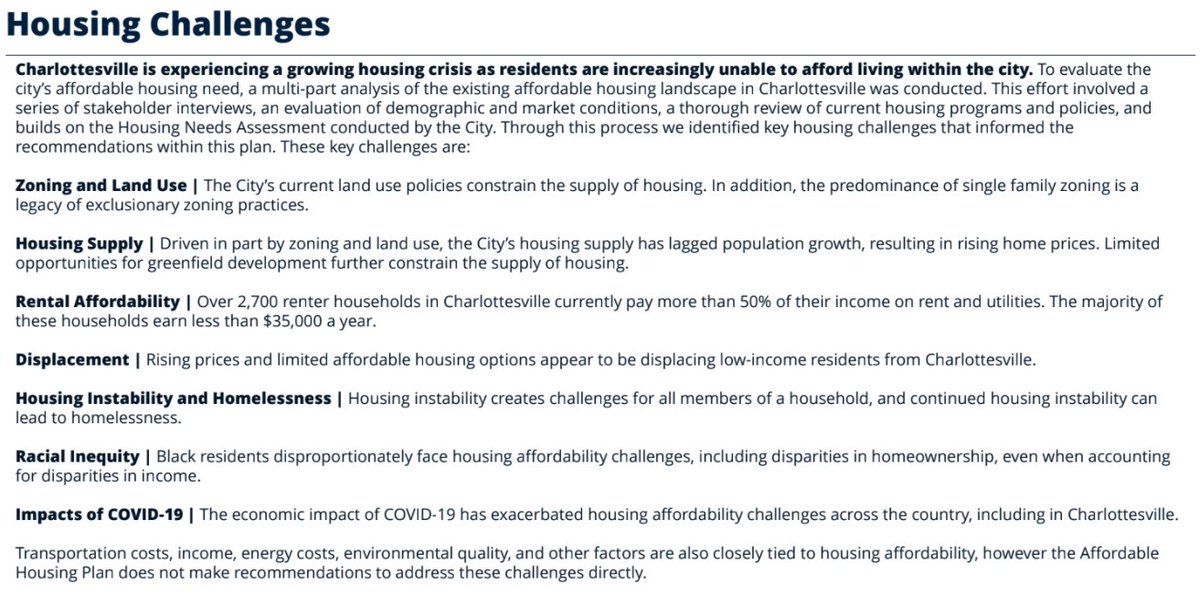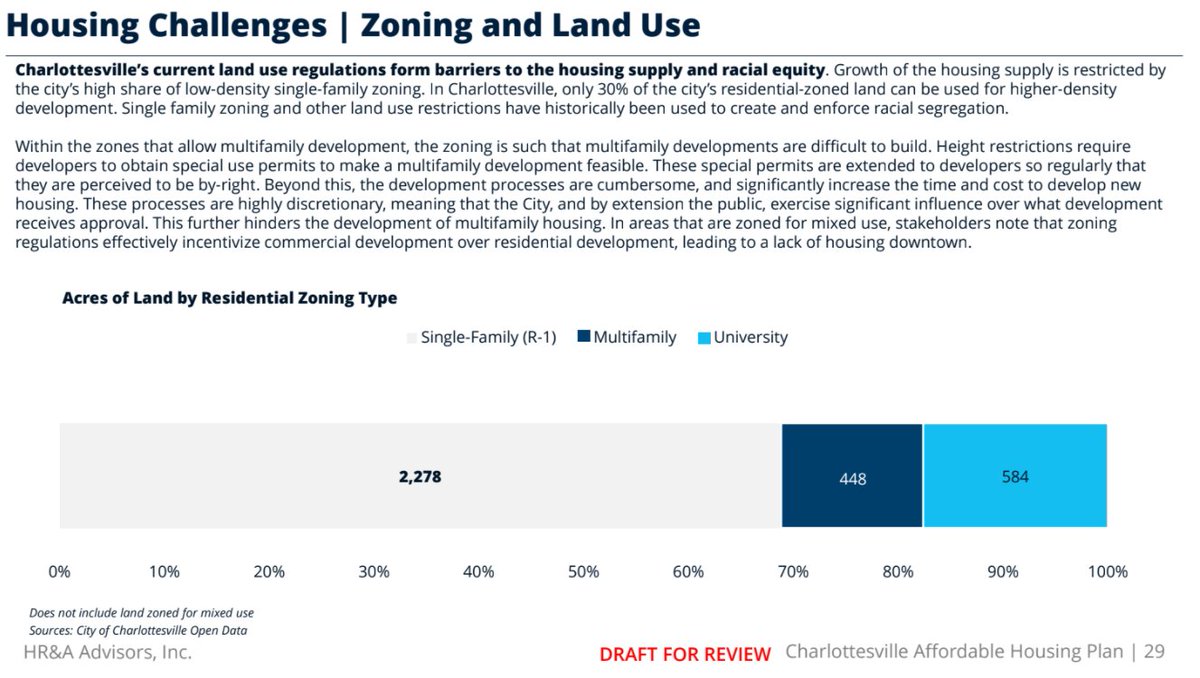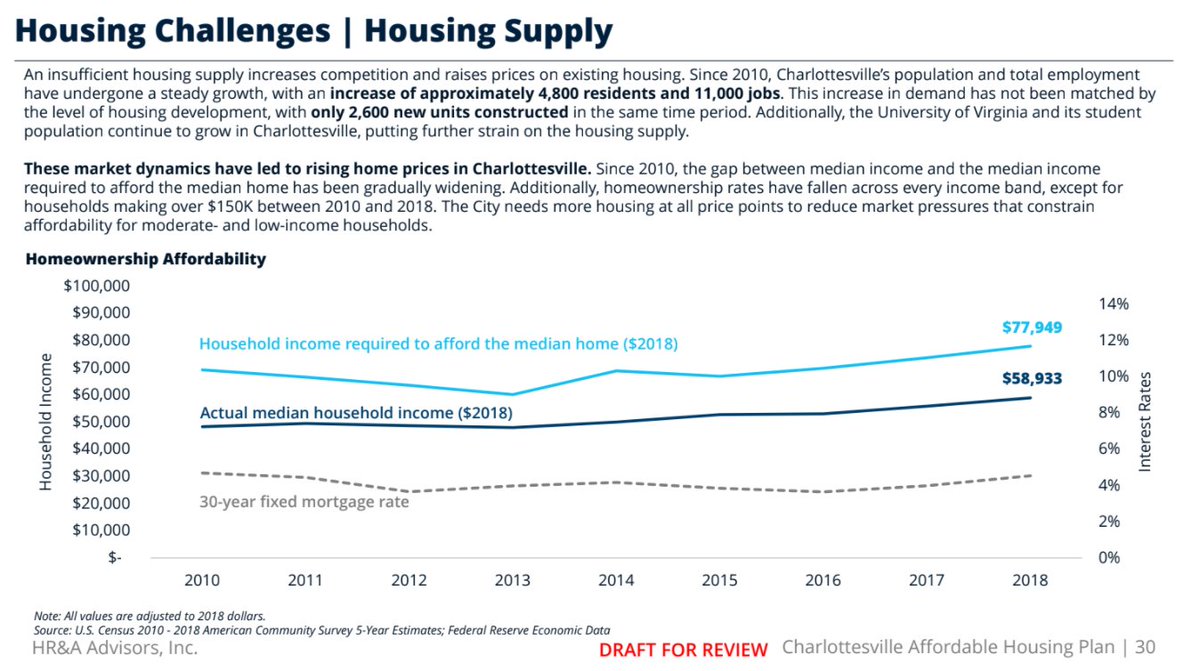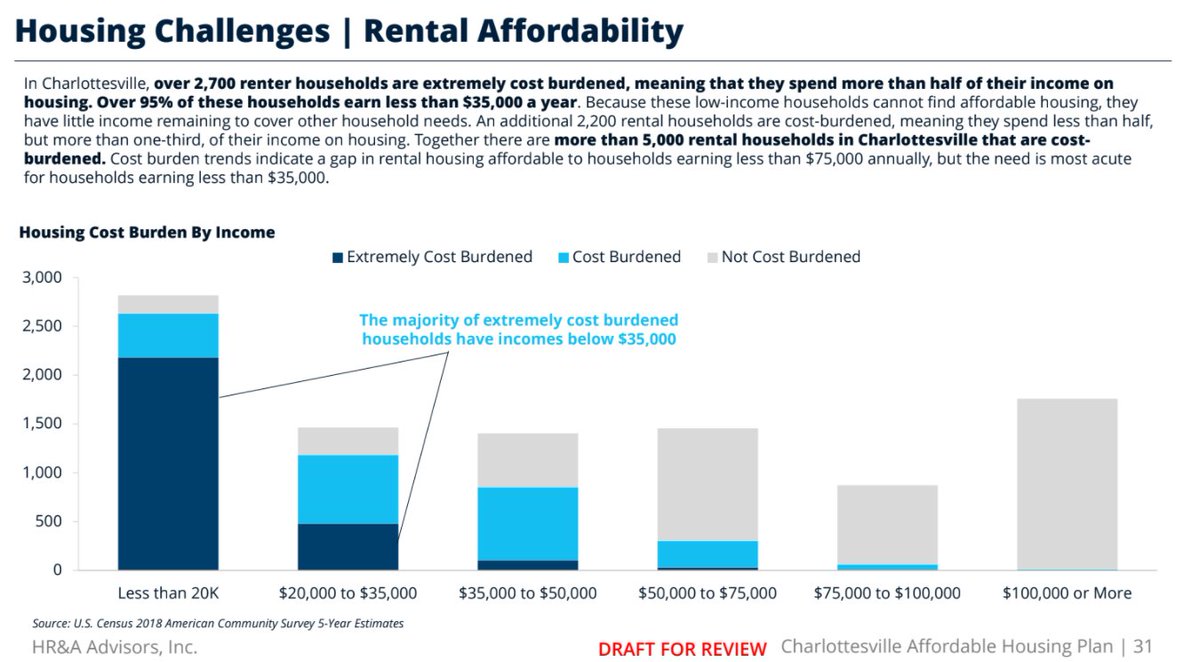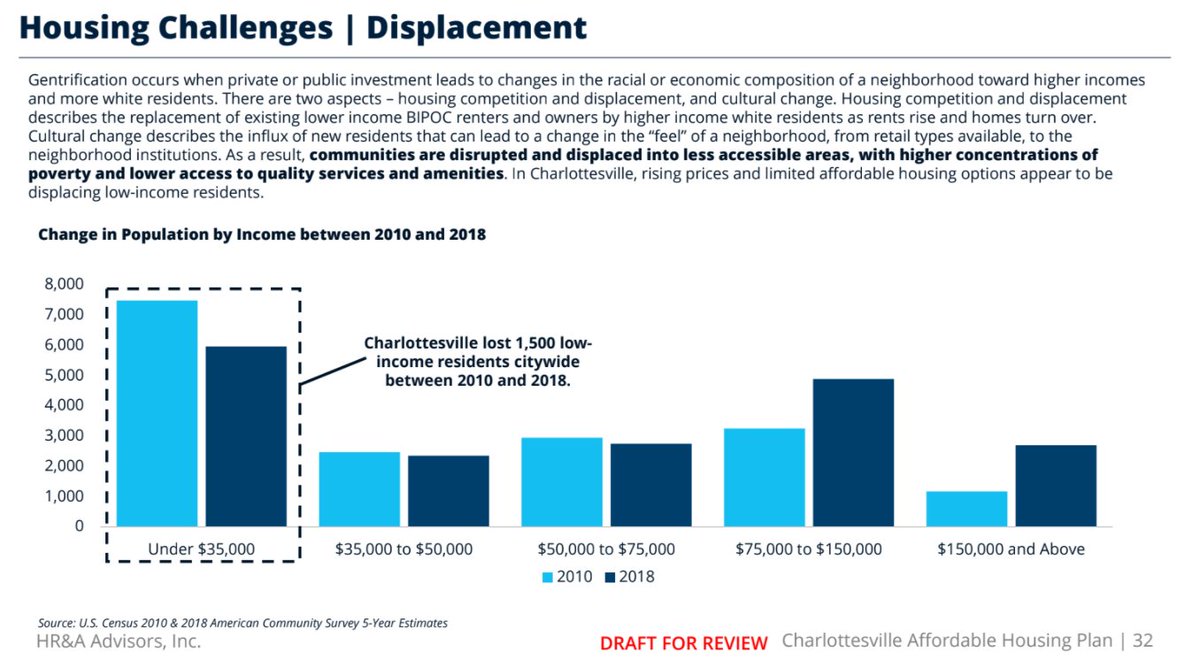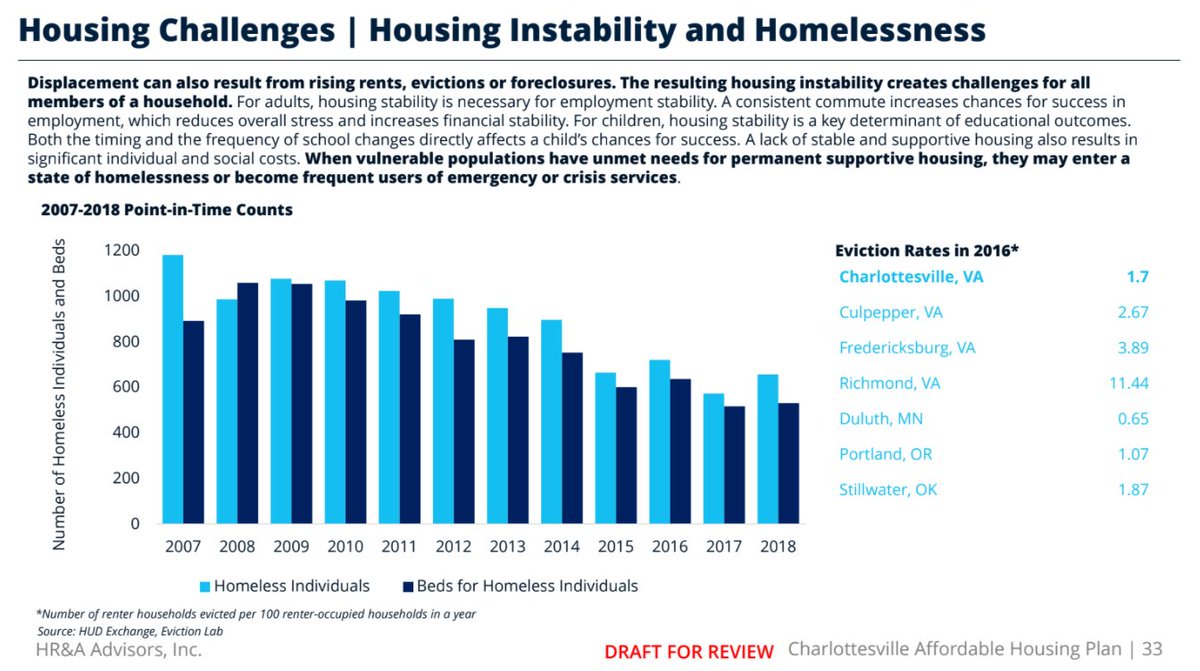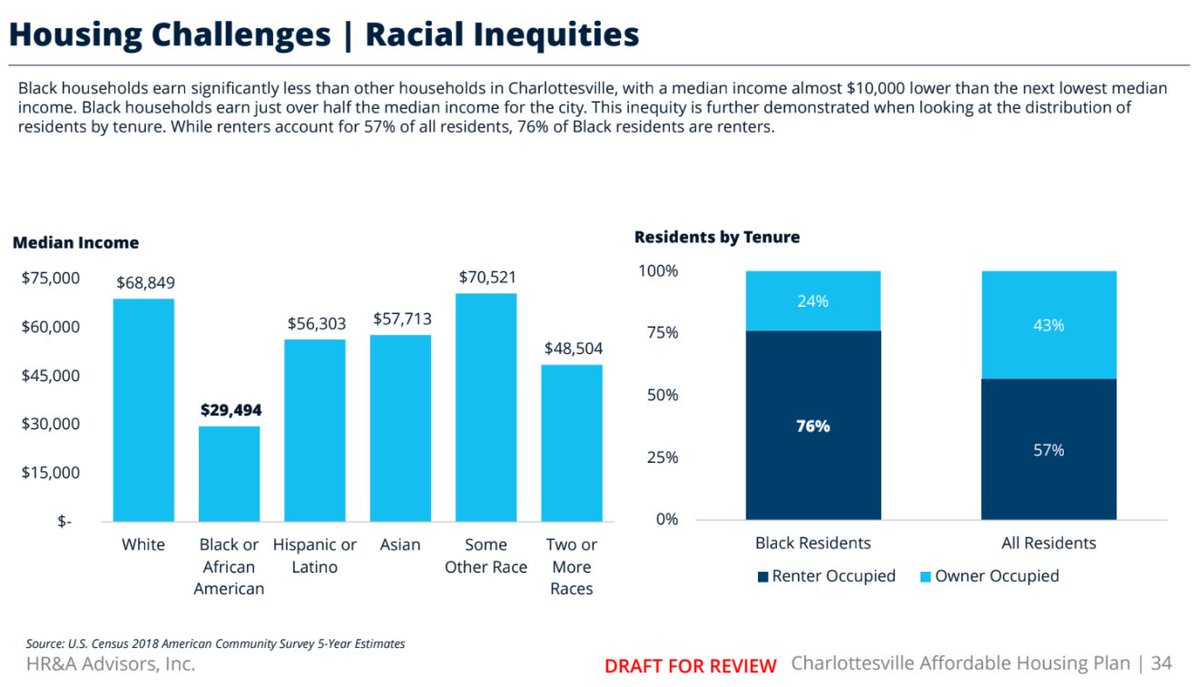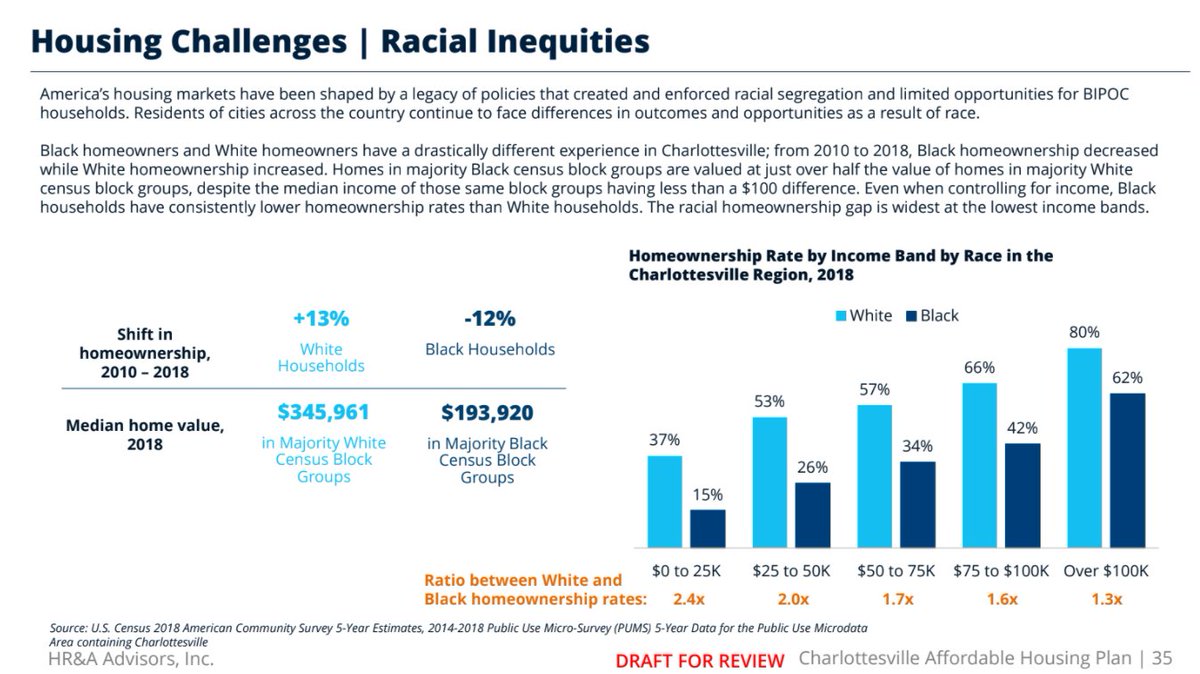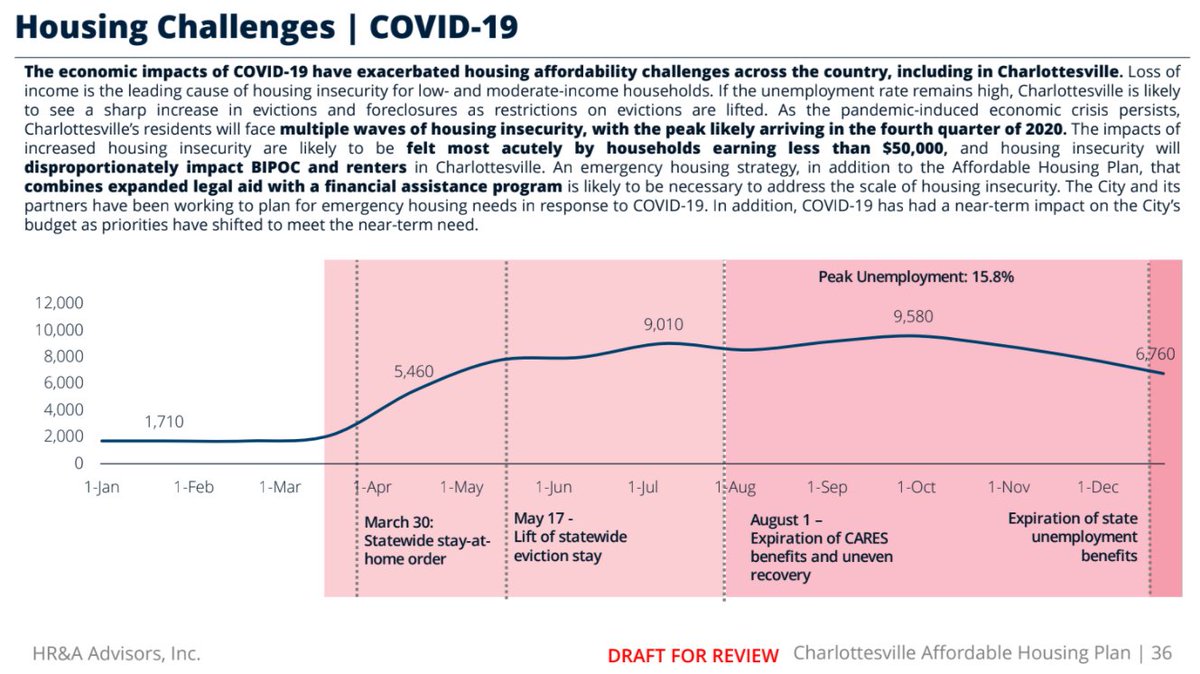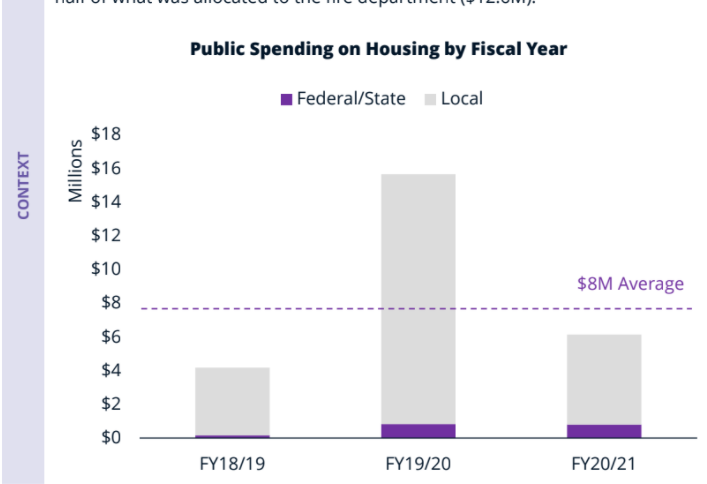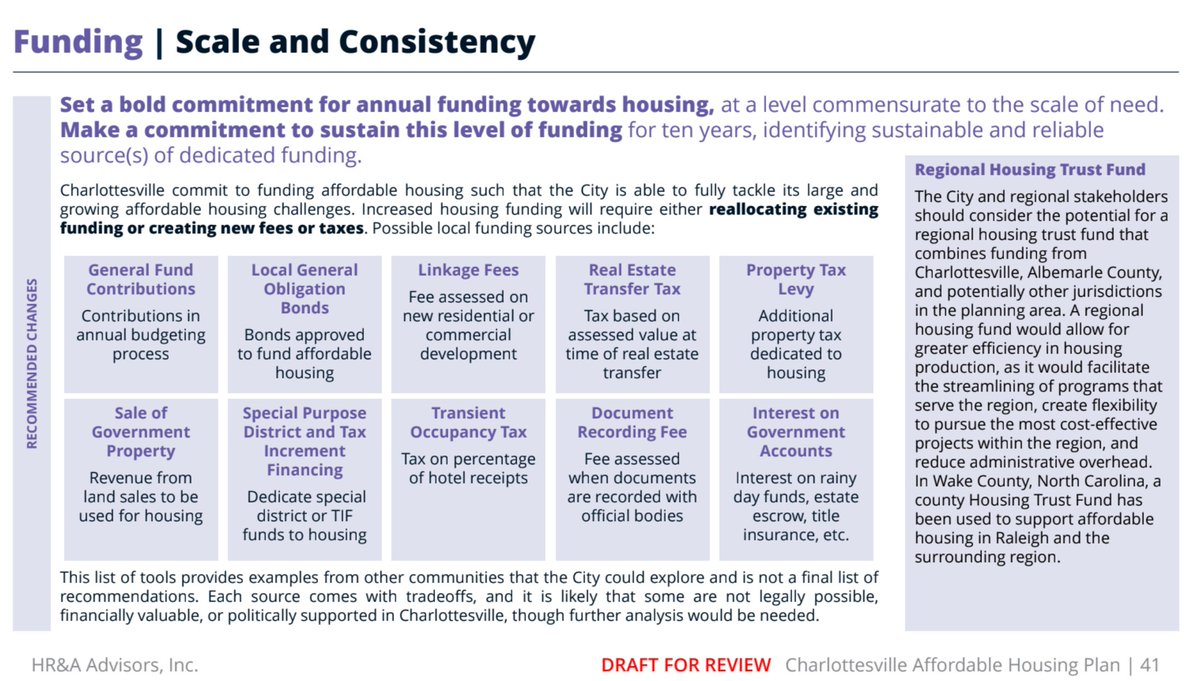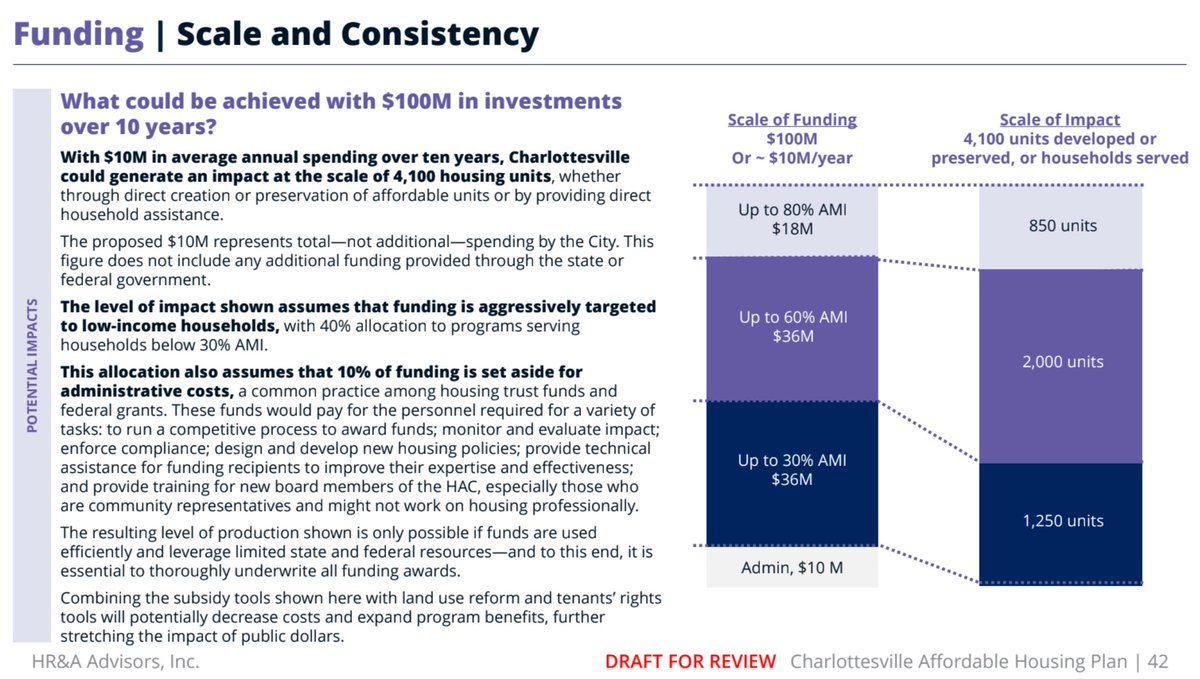The first draft for @CvilleCityHall 's new Affordable Housing Plan from @CvillePlans is posted here https://drive.google.com/file/d/1cOMYb4UiWgh1xexpcQ_EfduP3sDS5nDp/view (133 pages)
There's a change here. This will not serve as the Housing Chapter of the Comprehensive Plan, instead serving as a reference document for the final plan, with various parts planned to be incorporated into the final doc.
Good note that this is not the final doc and people are encouraged to reach out to @CvillePlans at https://cvilleplanstogether.com/contact-us/ with comments and suggestions but this winter is the rough deadline
Really happy to see a whole Land Use section here. Past affordable housing efforts in Charlottesville haven't played well with conflicting land use priorities like aesthetic controls and luxury truck storage mandates
New draft Vision Statement here, hits a lot of points the public have brought up. Racial equity especially has been heavily commented on.
And the big five recommendations based on those principles. Land Use is big in my mind with our current budget crisis and state restrictions on tentants' rights but it's important to get the big long term picture here.
Three major initiatives are laid out here. First, a consistent annual commitment of $10 million in spending so projects can be planned and executed within the next ten years without delays and cost jumps and funding gaps
Next is a systemic effort to improve and support inclusive governance across the City's affordable housing infrastructure. Many pieces of this exist on an ad hoc unpaid volunteer basis or in currently unstaffed city positions but that can be tenuous.
The last Zoning Reform item isn't pulling any punches. "Single family zoning...has...been a tool to create and reinforce racial segregation". The Land Use chapter will lay out some solutions to deliver better for the community.
Some additional info here on funding. Much of the funding used in Charlottesville is federal LIHTC money which we compete for on federal deadlines and with federal requirements
Some detail on governance, including realigning staffing to support strategic goals, slicing up the Housing Advisory Committee into two complementary bodies, and process improvements once we start funding housing projects again.
And my main focus, land use. The big ideas are to make more affordable home development allowed by right instead of forbidden in most of the city, and to mandate that some of those new homes be confirmed affordably priced.
Some good detail here on expanding the right of existing tenants, especially those most at risk of displacement. Much of this will require supportive legislation but not all
We get two pages on subsidy. This has been a major policy focus in Charlottesville for many years, so all but the Land Bank is already in place, if underfunded. The Land Bank has been teetering on a Council vote for years now.
I'm often asked who serves on the Steering Committee with me, and I just say "everyone" but that's not completely accurate. There will be a quiz.
Nice breakdown on what housing challenges are addressed here and what aren't. Those items at the bottom like transportation and energy costs are still real and important, but will need to addressed by another complementary project.
Zoning and Land Use is up front. Only 30% of residential land in the City allows more affordable housing types, often with burdensome height and other restrictions to make it difficult to build anything without requesting special permissions.
The dynamics in Housing Supply are simple. We have many more jobs, and more people, but housing production is far behind. This is making homeownership impossible for most people and rentals very expensive unless you drive from far away.
Which leads us to Rental Affordability. Almost 3,000 families spending more than half their income on a rental home.
And losing 1,500 low income friends, neighbors and family to lower cost areas with fewer amenities and greater poverty. A friend of mine told me "they're trying to get rid of us" and the numbers support her argument.
While we put a lot of money and effort into ending homelessness thanks especially to @TheHaven_TJACH we still have a long way to go
Racial Inequities gets two slides. In a city of renters and high incomes, Black families are much more likely to be renters but much less likely to enjoy a high income.
And racial inequity in homeownership is getting worse, even controlling for income, though it's worst at the lowest incomes. Majority Black areas likewise have much lower home values.
COVID has made all of this worse, but not evenly, disproportionately hitting families earning less than $50,000, renters, and BIPOC, as well as gobbling up the city's budget on emergency spending that otherwise would have gone to solving long term housing problems.
I'm concerned about this section of the Funding recommendations. The state doesn't give us many tools to raise funds, we are already in a budget crisis with an uncertain duration, and every year was a scramble in the good years.
Very proud to have played a small part in that historic FY19/20 budget. Even the strange new pre-downturn austerity FY20/21 budget process produced some good but we are going in behind where we need to be and don't have the advantages we had before.
There are some ideas for new funding sources to deliver $10 million a year. Many of these I know are legal like property taxes but quite a few I suspect are not. No land tax here sadly. The regional housing trust fund could be powerful.
I'm a little surprised at the breakdown here. I was expecting most of the money to be spent on those with the greatest need, but I don't see that.
Here is the 2017 Housing Needs Assessment for comparison, where most of the need was where people earned the least, though many of those families likely have since left the City https://twitter.com/LyleSollaYates/status/1032398213448384512?s=20
Wow, they are suggesting a 99 year target to keep rentals affordable. That will be pricy, but will offer lasting value too. For comparison, our public housing has not lasted 99 years.

 Read on Twitter
Read on Twitter

